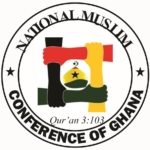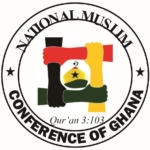
The National Muslim Conference of Ghana (NMCG) has clarified that Muslim students in government-assisted mission schools are not asking for mosques to be built on the various campuses, but are merely seeking the right to pray, fast, and not be compelled to attend church activities.
Their remarks are in response to a joint statement by the Christian Council of Ghana (CCG) and the Ghana Catholic Bishops’ Conference (GCBC).
In a statement issued under the leadership of the National Chief Imam, the NMCG expressed concern over the November 25 statement by the Christian bodies, which they said seeks to justify the suppression of minority religious rights in state-assisted mission schools.
The Muslim community described such positions as unconstitutional and contrary to the Memorandum of Understanding (MoU) on government-assisted mission schools, signed on April 15, 2024, and endorsed by the Ghana Education Service (GES) in April 2025.
The NMCG stressed that the Constitution guarantees every Ghanaian student the right to practice and manifest their religion, and mission schools that receive state funding cannot act as private religious enclaves.
They pointed to the GES Directive on Religious Tolerance (2015), which explicitly prohibits forcing Muslim students into Christian worship, denying them the hijab, or preventing them from practicing their faith.
The response further highlighted that the MoU signed by the mission schools and religious authorities requires acceptance of religious diversity, non-discrimination, and respect for students’ religious practices, including fasting and prayer.
The NMCG called on all institutions to uphold these agreements rather than violate them.
The statement also reminded the public of the National Chief Imam’s commitment to peace and religious coexistence, citing his historic visit to Christ the King Catholic Church in Accra during his 100th birthday celebrations as a symbol of interfaith harmony.
The NMCG further condemned the oppression of vulnerable students and urged all Islamic schools to respect the rights of non-Muslim students, noting that Islamic principles themselves emphasise freedom of belief.
They cited examples of several Islamic senior high schools, such as T.I. Ahmadiyyah, Kumasi, Suhum Islamic Girls SHS, and Siddiq SHS, where Christian female students are not required to wear the hijab, illustrating that religious coexistence is both possible and practiced.
- President Commissions 36.5 Million Dollars Hospital In The Tain District
- You Will Not Go Free For Killing An Hard Working MP – Akufo-Addo To MP’s Killer
- I Will Lead You To Victory – Ato Forson Assures NDC Supporters
Visit Our Social Media for More




